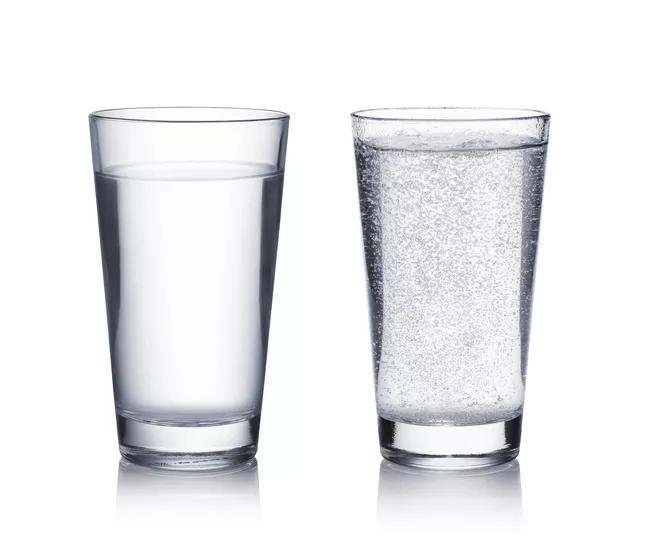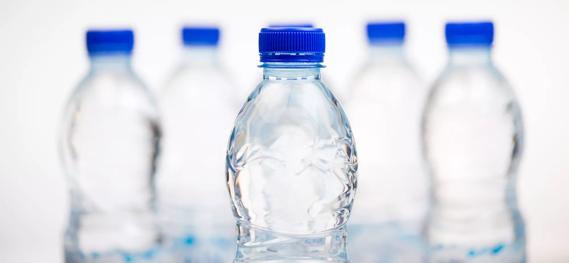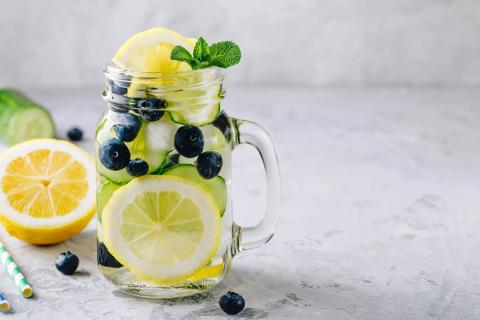Find out which water option is healthier

Mineral water, sparkling water, tonic water, club soda, flavored water. There are so many water options to choose from, but how do they stack up against plain old tap water? And which is the most nutritious choice?
Advertisement
Cleveland Clinic is a non-profit academic medical center. Advertising on our site helps support our mission. We do not endorse non-Cleveland Clinic products or services. Policy
Dietitian Kate Patton, MEd, RD, CSSD, LD, breaks down the many water options available today.
Sparkling water (or carbonated water) is tap water infused with carbon dioxide for carbonation. It won’t hydrate you any better than tap water, but you may prefer the tingly bubbles over the taste of flat water.
But not all sparkling waters are created equal, so you’ll want to read the ingredients before buying or drinking one. If you see sugar, artificial sweeteners or artificial coloring (typically used as a flavoring or as a preservative) on the label, skip the bubbly water and opt for tap water instead.
Mineral water is often naturally carbonated. But store-bought varieties differ from what you get from a home soda stream. Depending on the brand, they contain various amounts of calcium, sodium and magnesium.
Calcium is important for bone health and overall muscle function. Magnesium helps your body regulate blood sugar and blood pressure. But the sodium may pose a problem if you’re on a low-salt diet. If that’s the case and you’re trying to limit your sodium intake, then tap water is the healthier choice.
Many of us choose sparkling waters because they’re calorie-free. But it’s important to watch for hidden sugars and artificial sweeteners.
Advertisement
Tonic water is bitter, but it does actually contain sugar. In fact, one can of tonic water may contain as much sugar as a typical soda! If you can’t part with your tonic water, treat yourself to it every so often and make sure you adjust your other calories throughout the day to account for the treat.
On the other hand, club soda, or seltzer water, has no added sugar, so that is likely the smarter option.
Be sure to read the ingredients on fruit-flavored sparkling waters to make sure the flavors aren’t masking ingredients like sugar or artificial sweeteners. Calorie-free flavored waters often contain artificial sweeteners.
Regular consumption of artificially sweetened beverages has been linked to a significantly greater risk of metabolic syndrome, type 2 diabetes and even cancer. Studies also show that artificially sweetened beverages can make you feel hungry and encourage you to eat more, which can lead to obesity and a whole range of other health problems.
Look for another brand if you read words like sugar, high fructose corn syrup, aspartame or sucralose on the label — your body will appreciate it.
At the end of the day, whether you choose regular water or sparkling water, it’s best to stay hydrated with beverages that are free of both calories and artificial sweeteners.
Try adding lime, lemon or cucumber slices to give plain tap water or sparkling water a refreshing, delicious twist. Or look for water enhancements (usually sold in powder, liquid or tablet form), but make sure they are calorie free and don’t contain sugar.
Advertisement
Learn more about our editorial process.
Advertisement

Consumption needs vary based on activity, weather, metabolism and other factors

A glass of lemon water in the morning can help with digestion and boost vitamin C levels, and may even help get you into a better routine

Mold and bacteria in your reusable water bottle can cause health issues like infections, respiratory issues and allergic reactions

Sitting in the dry heat may help reduce stress, improve heart health and relieve pain

Adding salt to your water isn’t going to have measurable benefits — but there may be plenty of downsides

Drinking untreated water can have dangerous consequences, like bacterial infections

Although it adds to your hydration, this water may be pushing you over the limit of the daily recommended dosage of caffeine

If you’re trying to drink less soda or fewer sugary drinks, flavored water can be a delicious and healthy alternative

Wearing a scarf, adjusting your outdoor activities and following your asthma treatment plan can help limit breathing problems

Your diet in the weeks, days and hours ahead of your race can power you to the finish line

When someone guilt trips you, they’re using emotionally manipulative behavior to try to get you to act a certain way